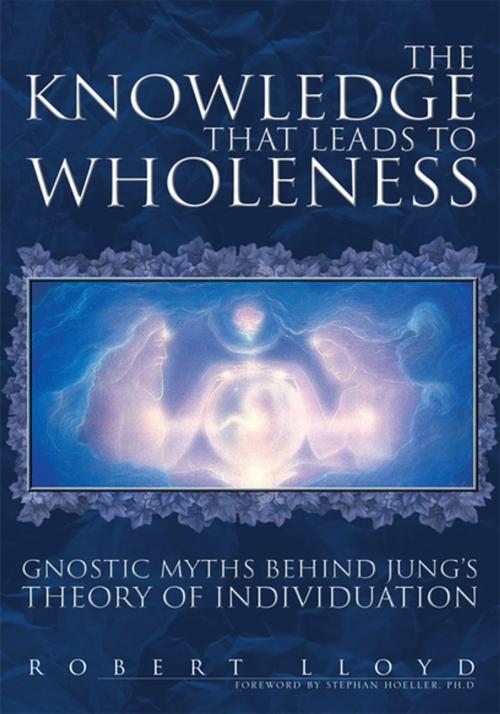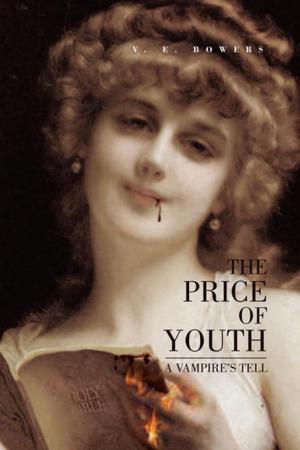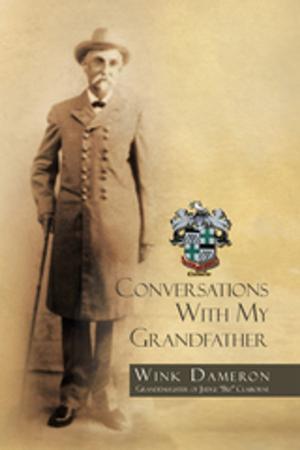The Knowledge That Leads to Wholeness
Gnostic Myths Behind Jung's Theory of Individuation
Nonfiction, Religion & Spirituality, Reference, Psychology of Religion, Inspiration & Meditation, Spirituality, Health & Well Being, Psychology| Author: | Robert Lloyd | ISBN: | 9781469102085 |
| Publisher: | Xlibris US | Publication: | March 26, 2007 |
| Imprint: | Xlibris US | Language: | English |
| Author: | Robert Lloyd |
| ISBN: | 9781469102085 |
| Publisher: | Xlibris US |
| Publication: | March 26, 2007 |
| Imprint: | Xlibris US |
| Language: | English |
The Knowledge that Leads to Wholeness is the first book to specifically illustrate how the major Gnostic myths underlie Jungs theory of individuation. It is a compelling and in-depth examination of a life-changing journey that begins with the author discovering the forgotten secrets of the Gnostics. These secrets are gradually unveiled as the author and his loyal dog, Gold, are initiated, each in their own way, to put the ancient knowledge into practice.
Dr. Lloyd explores the esoteric side of Carl Jung and reveals the connections between Jungs pivotal theory of individuation, i.e. the journey to wholeness, and the powerful, visionary myths told by the pioneers of the psyche, the Gnostics. He details what happens to a person who is on the road to wholeness, how the person will change, and how a new divine-human identity will be born into the world as a result of undertaking this transformational odyssey.
-KIRKUS DISCOVERIES Review -
Did Carl Jungs principles of psychology have Gnostic origins? A Marine Corps Ph.D. explores the complex mystical possibilities.
Lloyd splits his expansive hypothesis of the souls journey into three vital steps (preparation, undertaking and re-birth) in discovering Jungs path to wholeness. He credits Jung with saving his life by way of unlocking his imagination (the souls voice) and spiritual mindset. The author familiarizes readers with the Gnostic religious movement, practitioners of an intensely spiritual inner exploration, who believed that humans are not bound to experiences solely of the body and mind. His literary gift to Jung is these comparative ruminations, all exuding a great amount of imagination and provocative thought. Running parallel to the authors spiritually progressive interests is his adventuresome interaction with and imaginal dog named Gold, who discovers two seeds of knowledge. The first rediscovers the spark of divine life, whereby humans are one and the same with God, and the second amplifies Jungs individuation theory that the human ego must relate to the unconscious mind to achieve psychological health. Unerringly throughout his narrative, Lloyd grafts Gnostic myths with Jungian wisdom. He focuses on the psychic creator and king of the material world Demiurge in association with second-century Gnostic visionary Valentinus, whose tragic myth of Sophia tells of a restless female deity who travels outside of herself searching for wholeness rather than looking inward, and her ultimate repentance. Comparatively, Jung also writes of humans who restrict themselves to their five senses rather than tapping into the core strength of their imaginative visions where uncanny experiences might spring forth. As Lloyd (and Gold) survey principles of higher consciousness, the self, the transformative life-cycle process, and the concluding Syrian lyrical myth Song of the Pearl as they are juxtaposed against Jungs theories, the author also cites Gnostic challenges to contemporary religious beliefs as in the re-imagined genesis of Jesus of Nazareth. Most interestingly, Lloyd inserts Jung into his narrative to quiz his arbiters as to whether they have the desire to discover the mystery of their existence.
Unfiltered hokum for some, but those who are open to it will find much-needed nourishment and direction for their searching souls.
--Nielsen Business Media, 770 Broadway, New York, NY 10003 646-654-7277 fax 646-654-4706 discoveries@kirkusreviews.com
The Knowledge that Leads to Wholeness is the first book to specifically illustrate how the major Gnostic myths underlie Jungs theory of individuation. It is a compelling and in-depth examination of a life-changing journey that begins with the author discovering the forgotten secrets of the Gnostics. These secrets are gradually unveiled as the author and his loyal dog, Gold, are initiated, each in their own way, to put the ancient knowledge into practice.
Dr. Lloyd explores the esoteric side of Carl Jung and reveals the connections between Jungs pivotal theory of individuation, i.e. the journey to wholeness, and the powerful, visionary myths told by the pioneers of the psyche, the Gnostics. He details what happens to a person who is on the road to wholeness, how the person will change, and how a new divine-human identity will be born into the world as a result of undertaking this transformational odyssey.
-KIRKUS DISCOVERIES Review -
Did Carl Jungs principles of psychology have Gnostic origins? A Marine Corps Ph.D. explores the complex mystical possibilities.
Lloyd splits his expansive hypothesis of the souls journey into three vital steps (preparation, undertaking and re-birth) in discovering Jungs path to wholeness. He credits Jung with saving his life by way of unlocking his imagination (the souls voice) and spiritual mindset. The author familiarizes readers with the Gnostic religious movement, practitioners of an intensely spiritual inner exploration, who believed that humans are not bound to experiences solely of the body and mind. His literary gift to Jung is these comparative ruminations, all exuding a great amount of imagination and provocative thought. Running parallel to the authors spiritually progressive interests is his adventuresome interaction with and imaginal dog named Gold, who discovers two seeds of knowledge. The first rediscovers the spark of divine life, whereby humans are one and the same with God, and the second amplifies Jungs individuation theory that the human ego must relate to the unconscious mind to achieve psychological health. Unerringly throughout his narrative, Lloyd grafts Gnostic myths with Jungian wisdom. He focuses on the psychic creator and king of the material world Demiurge in association with second-century Gnostic visionary Valentinus, whose tragic myth of Sophia tells of a restless female deity who travels outside of herself searching for wholeness rather than looking inward, and her ultimate repentance. Comparatively, Jung also writes of humans who restrict themselves to their five senses rather than tapping into the core strength of their imaginative visions where uncanny experiences might spring forth. As Lloyd (and Gold) survey principles of higher consciousness, the self, the transformative life-cycle process, and the concluding Syrian lyrical myth Song of the Pearl as they are juxtaposed against Jungs theories, the author also cites Gnostic challenges to contemporary religious beliefs as in the re-imagined genesis of Jesus of Nazareth. Most interestingly, Lloyd inserts Jung into his narrative to quiz his arbiters as to whether they have the desire to discover the mystery of their existence.
Unfiltered hokum for some, but those who are open to it will find much-needed nourishment and direction for their searching souls.
--Nielsen Business Media, 770 Broadway, New York, NY 10003 646-654-7277 fax 646-654-4706 discoveries@kirkusreviews.com















